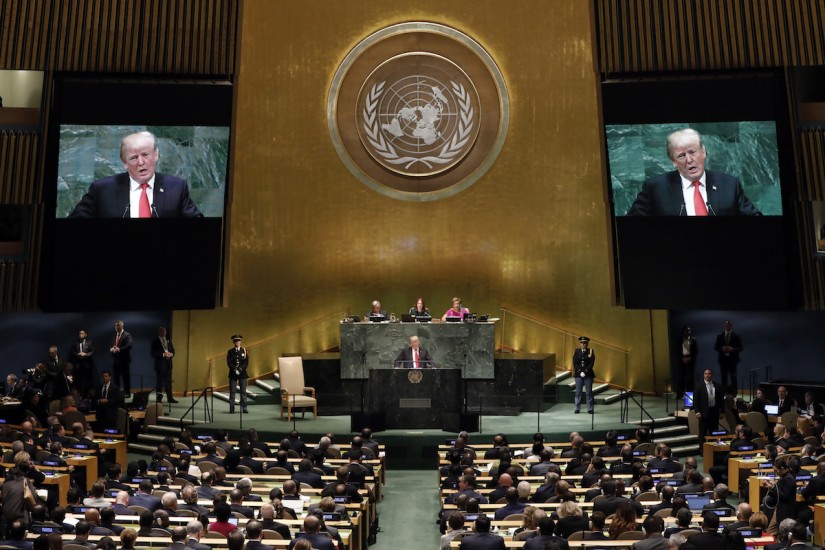When U.S. President Donald Trump spoke to the United Nations General Assembly yesterday, he deliberately signaled a definitive break with the internationalist consensus that has guided U.S. grand strategy since World War II. “We will never surrender America’s sovereignty to an unelected, unaccountable global bureaucracy,” he proclaimed. “Sovereign and independent nations are the only vehicle where freedom has ever survived, democracy has ever endured, or peace has ever prospered. And so we must protect our sovereignty and our cherished independence above all.” He was dumping cold war water on multilateralism and global governance—and the commentary that followed duly noted just how sharply his message diverged from those of his predecessors.
But Trump’s brand of statecraft is not in fact out of step with much of U.S. history. Rather, he is discarding the key tenets of U.S. foreign policy since World War II in favor of an older strain of thinking about the United States’ role in the world. As I argued in the March/April 2018 issue of this magazine (“The Clash of Exceptionalisms”), “America first” has deep roots in the United States’ past. It’s a callback to a time before World War II—to an earlier iteration of American exceptionalism and an older brand of statecraft. The hostility to U.S. participation in international pacts, the economic protectionism, the aversion to democracy promotion, the racially tinged nationalism, the isolationist temptation—these aspects of Trump’s “America first” approach are right out of the playbook that anchored foreign policy for most of U.S. history prior to the Japanese attack on Pearl Harbor.
Since Trump is not known for the depth and breadth of his historical knowledge, he is most likely not basing his foreign policy on a close reading of the United States’ past. But he does seem to have an uncanny ability to play to a heartland base that feels disadvantaged by globalization, immigration, and an expansive conception of international obligations—and which therefore yearns for the United States of yesteryear.
